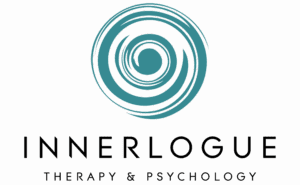Finding the right therapist can be a transformative part of your personal journey, improving your mental well-being and building emotional resilience. In Calgary, numerous clinics and professionals offer therapy services—but how do you make the right choice? At Innerlogue Therapy and Psychology, we understand that selecting the right professional is a deeply personal and important step. This step-by-step guide is here to support your decision-making process and give you the tools to make an informed choice.
Step 1: Identify Your Needs
Before you begin looking for a therapist, it’s essential to clarify your goals and the reasons you want to seek support. These may include:
- Anxiety or depression
- Relationship issues
- Trauma or post-traumatic stress
- Emotion management
- Grief, loss, or life transitions
- Personal growth or self-development
- Therapy for children, teens, couples, or families
- Attention Deficit Disorder with or without Hyperactivity (ADHD)
Some psychologists specialize in specific areas, although many are trained to support various concerns. At Innerlogue Therapy and Psychology, we have a diverse team of specialists: Carmen Dominguez specializes in supporting children with Autism Spectrum Disorder, Lori Johnstone focuses on depression, anxiety, and grief, and Lizzie Smith specializes in complex trauma and PTSD.
If you’re unsure about your specific needs, we offer a free 15-minute consultation to help clarify your goals and direct you to the right professional.
It’s also important to consider the type of support you’re looking for: Do you prefer a more directive or collaborative approach? Do you have a gender preference for your therapist?
Are you looking for short-term or long-term therapy?
Step 2: Learn About the Different Types of Therapists
In Calgary, various professionals provide mental health services, each with unique training and approaches. Here’s an overview of the main types:
- Registered Psychologists: Hold a master’s or doctoral degree and are qualified to diagnose and treat a wide range of mental health concerns.
- Registered Clinical Social Workers (RCSWs): Specialize in therapeutic intervention, particularly with vulnerable populations.
- Certified Counsellors or Therapists: May focus on individual, couples, or family therapy.
- Psychiatrists: Medical doctors who can prescribe medication in addition to offering therapeutic support.
Make sure the professional is licensed by a regulatory body such as the College of Alberta Psychologists or the Alberta College of Social Workers.
At Innerlogue Therapy, our team consists exclusively of licensed and registered psychologists, ensuring you receive care that meets high professional standards.
Step 3: Explore Different Therapeutic Approaches
Each therapist uses a particular orientation or therapeutic approach. Some of the most common include:
- Cognitive Behavioral Therapy (CBT): Focuses on identifying and changing negative thought patterns and behaviors.
- Person-Centered Therapy: Emphasizes empathy, authenticity, and unconditional regard.
- Emotionally Focused Therapy (EFT): Often used with couples or individuals who struggle to identify or process emotions.
- EMDR (Eye Movement Desensitization and Reprocessing): Effective in treating trauma.
- Schema Therapy: Helpful for individuals with persistent relational patterns.
If you’re unsure which approach would suit you best, feel free to ask questions during your initial consultation.
Step 4: Search for Specialized Therapists in Calgary
Platforms like Psychology Today, Theravive, or clinic websites like Innerlogue Therapy and Psychology can help you filter therapists based on specialization, location, or spoken language.
Take the time to read therapist bios, treatment philosophies, and client reviews (if available). Many therapists offer a free initial consultation via phone or video call, which allows you to assess compatibility. Finding the right psychologist is a bit like finding the perfect pair of shoes — it needs to be the right fit, and sometimes it takes trying on a few before discovering the one that truly feels right. Be prepared to do a little shopping around.
Step 5: Ask the Right Questions to Evaluate Compatibility
During your first contact with a therapist, be prepared to ask questions that will help you evaluate the therapeutic relationship. Here are a few helpful ones:
- Do you have experience working with people who have similar concerns to mine?
- What is your therapeutic approach?
- How long does therapy usually last?
- Do you offer online sessions?
- What is your cancellation policy?
- What are your rates, and do you accept private insurance?
The therapeutic relationship is crucial to a successful outcome. It’s built on trust, active listening, and a mutual understanding of your goals.
Step 6: Assess Your Budget and Explore Financial Options
Therapy is a valuable investment in your well-being, but it’s important to ensure it remains financially accessible. Before starting treatment, take some time to assess your budget and available resources. Consider:
- What is the average cost of a session in Calgary?
- How frequently do you plan to attend sessions (weekly, biweekly, as needed)?
- Does your private insurance cover sessions with a psychologist, social worker, or certified counsellor?
- Do you have access to an Employee Assistance Program (EAP) or community resources?
At Innerlogue, we offer reduced rates for sessions with our master’s psychology interns. These supervised sessions provide high-quality care while helping you stay within budget.
Step 7: Consider Practical Factors
Beyond therapeutic style and compatibility, logistical aspects can influence your choice:
- Proximity of the office or online availability
- Flexible scheduling (evenings, weekends)
- Financial accessibility (rates, insurance coverage)
- Language (your native or preferred language)
At Innerlogue, we offer both in-person and online sessions and consultations in multiple languages: English, French, Mandarin, Cantonese, Vietnamese, Ukrainian, and Tagalog.
Step 8: Trust Your Intuition
Finally, even if a therapist appears perfect on paper, your gut feeling matters a lot. After a few sessions, ask yourself:
- Did I feel heard and understood?
- Am I comfortable exploring my emotions with this person?
- Is this relationship helping me better understand myself?
If the answer is yes, you’re probably on the right path.
Choosing a therapist in Calgary might seem overwhelming, but by following these steps, you’re giving yourself the best chance to find a competent, compassionate, and suitable professional.
At Innerlogue Therapy and Psychology, we believe deeply in the importance of human, respectful support. We provide a safe environment, an experienced and diverse team, and flexible, accessible sessions in multiple languages.
If you’re ready to start your journey, we’re here to support you every step of the way.
References
- Canadian Psychological Association. (2017). Psychotherapy and counselling: What’s the difference? https://cpa.ca/psychologyfactsheets/psychotherapy/
- College of Alberta Psychologists. (2024). Find a psychologist. https://www.cap.ab.ca
- Mental Health Commission of Canada. (2023). Finding the right mental health professional. https://mentalhealthcommission.ca
- Psychology Today. (2025). Therapists in Calgary, AB. https://www.psychologytoday.com/ca/therapists/alberta/calgary
- Government of Alberta. (2024). Mental health and addiction services. https://www.alberta.ca/mental-health







